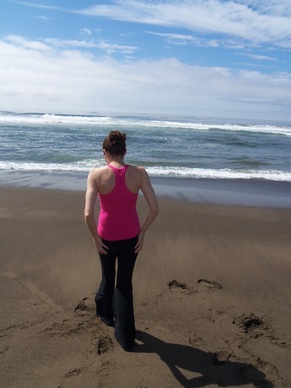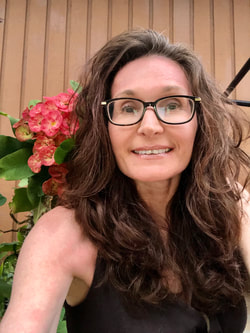|
No one gets through life without being hurt by another person. We all have experienced the pain of a thoughtless remark, gossip, or lie. If you have experienced an unhappy marriage, the devastation of infidelity, or suffered physical or emotional abuse, you know what it feels like to be hurt. It is tempting to hold on to these feelings and build a wall of safety around yourself, but the best way to heal is to forgive the person who hurt you. I love this quote perhaps because it speaks to the process of forgiveness. “We come to love not by finding a perfect person, but by learning to see an imperfect person perfectly.” - Sam Keen, from To Love and Be Loved
What Is Forgiveness? When you forgive another person, you no longer allow their behavior to cause you anger, pain, bitterness, or resentment. When you choose not to forgive, you make the choice to hold on to your feelings of resentment, anger, and pain. Why Should I Forgive? Think of forgiveness as a gift that you give to yourself. It is not something you do for the person who hurt you. It is a gift to yourself because it enables you to stop feeling painful feelings and pushing others away. Forgiveness frees you from anger and allows you to restore your ability to have close and satisfying relationships with others. Anger is a poisonous emotion that comes from being hurt. When you are consumed with anger and bitterness, it hurts you at least as much as it hurts the person who has harmed you. It is as if you are filled with poison. If these feelings are not resolved, they can begin to eat you up inside. You have two choices: to stay connected to the person who hurt you by keeping these poisonous feelings alive, or to let the feelings go and forgive the person who harmed you. When you withhold forgiveness, think about who is actually being hurt. It is more than likely that the person who is filled with anger and anxiety is you, not the other person. What Forgiveness Is Not Forgiving another does not mean you will never again feel the pain or remember the thing that hurt you. The hurtful experience will be in your memory forever. By forgiving, you are not pretending the hurtful behavior never happened. It did happen. The important thing is to learn from it while letting go of the painful feelings. Forgiveness is not about right or wrong. It doesn’t mean that the person’s behavior was okay. You are not excusing their behavior or giving permission for the behavior to be repeated or continued. When you forgive another, it does not mean you wish to continue your relationship with them. This is a separate decision. You can forgive a person and live your life apart from them. Forgiveness can only take place because we have the ability to make choices. This ability is a gift that we can use it whenever we wish. We have the choice to forgive or not to forgive. No other person can force us to do either.  Professional counselors will tell you that one of the most important relationship skills they teach is active listening. Often people get into trouble in their relationships because they have not developed their ability to listen and communicate. However, one can learn to step out of reactivity and listen deeply and lovingly. This is a great gift to self and to family and friends. Barriers to Effective Communication There are some good reasons why many people are less-than-effective communicators. These are the most common reasons: • Lack of skill; not knowing how • Not taking the time to think through what one wants to say • Not taking the time to anticipate what another person might be thinking and feeling • Fear of revealing too much of oneself • Being afraid of another person’s anger • Not wanting to hurt another person’s feelings Four Key Listening Skills Listening skills are the building blocks of effective communication. These skills enable you to demonstrate that you are interested in what the other person has to say, as well as hearing and understanding the other person. Four key listening skills are open-ended questions, summary statements, reflective statements, and neutral questions and phrases. They are easy to learn with a little practice. Open-ended questions begin with what, why, how do, or tell me.
The Atlantic publishes good article summarizing John Gottman's research suggesting that kindness is a as key factor in successful relationships. Check it out!
 Poem by one of my Yoga Teachers Kiara McBain. It is profound. Tonight I realized life is clean and simple a mere blank canvas on which to create it's people that make life complicated the mess of another makes a mess of our own life I wanted to swear to stay away from broken hearts and broken people but the hard truth is very few sort out their demons very few know themselves enough to live honestly and very few look at life as an opportunity to learn so it is our job to love the messy landscape of humanity as if adoring a sunset with all its bleeding lines lack of definition and gleaming imperfections I was surfing around the web and came across resources for Nonviolent Communication by Marshall Rosenberg. I was pretty impressed and wanted to pass along these resources. While watching the videos I realized that what I do in relationship counseling is very similar to what Rosenberg does with tribes and warring groups. I help couples and families get to and communicate what is at the heart of the matter. I do this by facilitating the expression of deep human needs within each person that are not being met in the relationship. This often promotes empathy and connection and dissolves anger. After thinking about how similar Nonviolent Communication was to Emotionally Focused Therapy for Couples and Families, my mind moved to its application to current events. It made me think of the Zimmerman/Trayvon Martin tragedy and how differently it all may have gone down if this way of thinking and interacting were promoted in our county. I felt sad knowing our country promotes ideas like "standing your ground " over empathic non-judgmental listening. The videos are long but worth a listen and a reflection. YouTube has tons more as well. Resources: Nonviolent Communication In every interaction we have with our partner there is the opportunity to heal. I guess that is truly what love is, a dynamic powerful healing agent. We, especially partners, are deeply connected and attached to each other. Science tells us that the way we communicate can impact each other's brains, for good or for ill. I guess we can build each other up or tear one another down. I image just like me, you too desire to do good. In this video, we get some tools for creating and maintaining love and secure attachment. The 4 Mantras: 1. Darling, I am here for you. 2. Darling, I know you are there. 3. Darling, I know you suffer and that is why I am here for you. 4. Darling, I suffer. I do my best to practice. Please help. Listen to this great video for a deeper understanding and advice on how to love. Since April I have been doing a small class for therapists once a month introducing them to Emotionally Focused Therapy or EFT. I do not really consider myself a teacher but felt I wanted to be a part of spreading the good news about EFT. I love EFT and helping couples come together using it. I see couples go from distress and disconnection to peace and connection with each other. It is a joy to see this healing take place and I really wanted to show other therapists how to do this. It has been fun teaching others this therapy. So, what exactly is Emotionally Focused Therapy?
|
Evelyn Schmechtig CochranCategories
All
Archives
February 2024
|


















